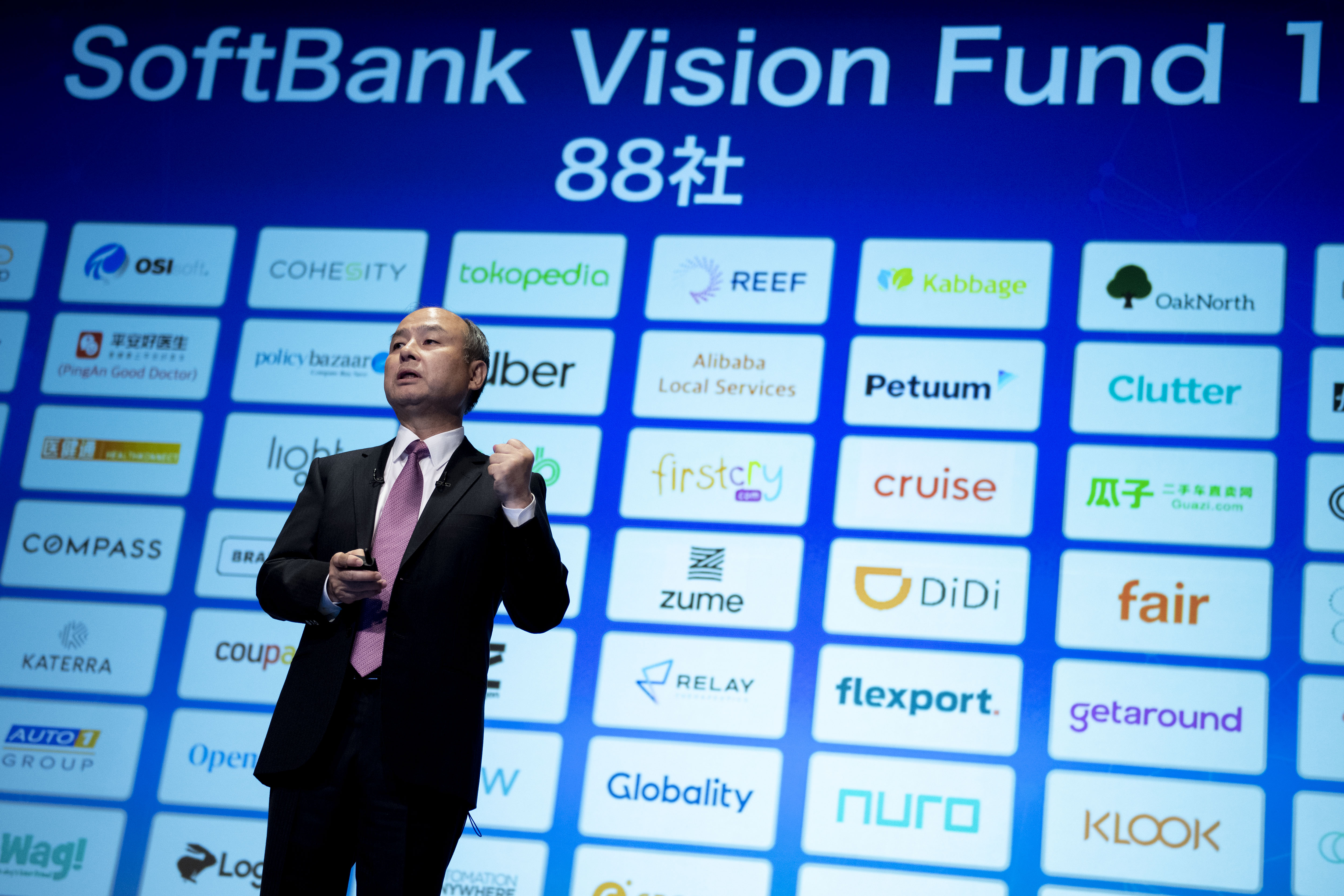Every year, the tech industry experiences moments that serve as guideposts for future entrepreneurs and investors looking to profit from the wisdom of the past.
In 2017, Susan Fowler published her heroic blog post criticizing Uber for its culture of sexual harassment, helping spark the #MeToo movement within the tech industry; 2018 was the year of the scooter, in which venture capitalists raced to pour buckets of cash into startups like Bird, Lime and Spin, hoping consumer adoption of micro-mobility would make the rushed deals worth it.
These last twelve months have been replete with scandals, new and interesting upstarts, fallen CEOs and big fundraises. Theranos founder Elizabeth Holmes finally got a court date, SoftBank’s Masayoshi Son admitted defeat (see: “In the case of WeWork, I made a mistake”), venture capitalist Bill Gurley advocated for direct listings and denounced big banks’ underwriting skills, sperm storage startups battled for funding and Away’s dirty laundry was aired in an investigation conducted by The Verge.
The list of top moments and over-arching trends that defined this year is long. Below, I’ve noted what I think best represent the largest conversations that occurred in Silicon Valley this year, with a particular focus on venture capital, followed by honorable mentions. As always, you can email me (kate.clark@techcrunch.com) if you have thoughts, opposing opinions, strong feelings or relevant anecdotes.

1. SoftBank admitted failure: We’ll get to WeWork in a moment, but first, let’s talk about its multi-billion-dollar backer. SoftBank announced its Vision Fund in 2016, holding its first major close a year later. Ultimately, the Japanese telecom giant raised roughly $100 billion to invest in technology startups across the globe, upending the venture capital model entirely with its ability to write $500 million checks at the flip of a switch. It was an ambitious plan and many were skeptical; as it turns out, that model doesn’t work too well. Not only has WeWork struggled despite billions in funding from SoftBank, several other of the firm’s bets have wavered under pressure. Most recently, SoftBank confirmed it was selling its stake in Wag, the dog-walking business back to the company, nearly two years after funneling a whopping $300 million in the then-three-year-old startup. Wag failed to accumulate value and was struck by scandal, leading to SoftBank’s exit. Why it matters: ditching one of its more high profile bets out of the monstrous Vision Fund wasn’t even the first time this year SoftBank admitted defeat. Once an unstoppable giant, SoftBank has been forced to return to reality after years of prolific dealmaking. No longer a leader in VC or even a threat to other top venture capitalists, SoftBank’s deal activity has become a cautionary tale. Here’s more on SoftBank’s other uncertain bets.
2. WeWork pulled its IPO. The biggest story of 2019 was WeWork. Another SoftBank portfolio, in fact the former star of its portfolio, WeWork filed to go public in 2019 and gave everyone full access to its financials in its IPO prospectus. In August, the business disclosed revenue of about $1.5 billion in the six months ending June 30 on losses of $905 million. The IPO was poised to become the second-largest offering of the year behind only Uber, but what happened instead was much different: WeWork scrapped its IPO after ousting its founding CEO Adam Neumann, whose eccentric personality, expensive habits, alleged drug use, desire to become Israel’s prime minister and other aspirations led to his well-publicized ouster. There’s a lot more to this story, click here for more coverage of the 2019 WeWork saga. Why it matters: WeWork’s unforgiving IPO prospectus painted a picture of a high-spending company with no path to profit in sight. For years, Silicon Valley (or New York, where WeWork is headquartered) has allowed high-growth companies to raise larger and larger rounds of venture capital, understanding that eventually their revenues would outgrow their expenses and they would achieve profitability. WeWork, however, and its fellow ‘unicorn,’ Uber, made it all the way to IPO without carving out a strategy of reaching profitability. These IPOs ignited a wide-reaching debate in the tech industry: does Wall Street care about profitability? Should startups prioritize profits? Many said yes. Meanwhile, the threat of a downturn had startups across industries cutting back and putting cash aside for a rainy day. For the first time in years, and as The New York Times put it, Silicon Valley began trying out a new mantra: make a profit.
3. A whole bunch of CEOs stepped down: Adam Neumann wasn’t the only high profile CEO to move on from their company this year. In a move tied to The Verge’s investigation, Away co-founder and CEO Steph Korey stepped down from the luggage company, instead becoming its executive chairman. Lime’s CEO Toby Sun stepped down, shifting to another role within the company. On the public end of the ecosystem, McDonald’s, REI, Rite Aid and many others replaced their leaders. According to CNBC, nearly 150 CEOs left their post in November alone, setting up 2019 to break records for CEO departures with nearly 1,500 recorded already. Why it matters: All of these departures were caused by varying factors. I will focus on WeWork and Away, which took center stage of the startups and venture capital universe. The recent Away debacle reinforces the role of the tech media and its ability to present well-reported facts to the public and enact significant change to business as a result. Similarly, much of Adam Neumann’s ouster came as a result of strong reporting from outlets like The Wall Street Journal, Bloomberg and more. From facilitating a toxic, cutthroat culture to paying millions in company dollars for an unnecessary private jet, Away and WeWork’s situations proved standards for startup CEOs has shifted. Whether that shift is here to stay is still up for debate.
https://twitter.com/KateClarkTweets/status/1201981944180817920?s=20
4. The IPO market was unforgiving to unicorns: WeWork never made it to the stock markets, but Uber, another scandal-ridden unicorn, did. The company (NYSE: UBER), previously valued at $72 billion, priced its stock at $45 apiece in May for a valuation of $82.4 billion. It began trading at $42 apiece, only to close even lower at $41.57, or down 7.6% from its IPO price. Not stellar, in fact, quite bad for one of the largest venture-backed companies of all time. Uber, however, wasn’t the only one to struggle with its IPO and first few months on the stock market. Other companies like Lyft and Peloton had disappointing results this year confirming the damage inflated valuations can cause startups-turned-public companies. Though a rocky IPO doesn’t mark the end of a company, it does tell you a lot about Wall Street’s appetite for Silicon Valley’s top companies. Why it matters: 2019’s tech IPOs illustrated a disconnect between the public markets and venture capitalists, whose cash determines the value of these high-flying companies. Wall Street has realized these stocks, which NYT journalist Erin Griffith recently described as “Publicly Listed Unicorns Miserably Performing,” are far less magical than previously assumed. As a result, many companies, particularly consumer tech businesses, may delay planned offerings, waiting until the markets stabilize and become hungry again for big-dreaming tech companies.
5. Investors fought for seed deals: On the other end of the startup lifecycle, venture capital funds large and small competed for access to the best startups this year. This happens every year, but 2019 competition for deals felt bigger and more heated than ever. Not only are there more venture capital funds today than yesterday, there has specifically been an influx of nano funds (vehicles under $25 million) with operational angels at the helm. Like billion-dollar funds, these nano-funds seek rising early-stage startups. Both the nano-funds and the Sequoias of the world are, as a result of the competition, forced to find new ways to differentiate, whether that’s adding fresh faces to the team focused on culture or platform, or gifting founders bikes and other goodies to get them to sign term sheets. If you’re looking for more on this, I’ve written a lot about this trend this year. Why it matters: To survive in this ultra-competitive environment, smaller investors especially must adopt new strategies to get themselves in front of the up and comers. Although the individual partner at a fund matters most in winning deals and developing long-lasting, collaborative relationships, to be most successful, investors may need to seek out other geographies, where deals are less competitive, valuations more reasonable and talent just as strong, or even move to the pre-seed, where they can land a deal before Sequoia gets wind of a business.

6. Y Combinator got a lot bigger: 2019 was a very important year for the largest and most famous accelerator in Silicon Valley. For one, Y Combinator ditched its Silicon Valley headquarters for San Francisco, setting up shop in the city where founders now prefer to live and grow their businesses. The accelerator also lost its long-time leader, Sam Altman, who stepped down as president in March to be succeeded by Geoff Ralston. Most importantly, however, YC began mentoring its largest cohort of companies to date. The astonishing 200-plus group in its winter 2019 batch was more than 50 percent larger than the 132-team cohort that graduated in spring 2018. To accommodate the truly gigantic group at YC Demo Days later this month (March 18 and 19), YC even had to move to a new venue, SF’s Pier 48. Why it matters: Y Combinator is responsible for mentoring, developing, even funding hundreds of startups per year. The accelerator largely sets the tone for startups in the Bay Area — the epicenter of technology — and is responsible for determining future unicorns. By opening up the accelerator to 50% more startups each year, the firm is giving the opportunity to many more companies to become part of that unicorn class. That means, however, that YC is setting itself up for more failures. With more admits to each cohort, comes more companies that will inevitably crash and burn. Changes to YC’s structure means demo days are more noisy and less helpful for investors. Whether these changes knock YC off its long-held pedestal is to be determined, but many investors in the region certainly seem unsure YC still provides as much value as it once did.
7. VCs fell in love with direct listings: While many were complaining about failed IPOs or lambasting the failures of Wall Street’s bankers, others were busy promoting a new and different path to the public markets: direct listings. Direct listings are a way for companies to go public by selling existing shares held by insiders, employees and investors directly to the market, rather than the traditional method of issuing new shares. They rose to popularity after Spotify successfully completed one in 2018, followed by Slack in 2019 and most likely Airbnb in 2020. They were a big part of the venture capital narrative in 2019 thanks to Benchmark general partner Bill Gurley, who has taken to Twitter and TV to rave about the opportunity presented by direct listings. “Most people are afraid of backlash from the banks so they don’t speak out,” Gurley told CNBC earlier this year of his decision to publicly advocate for direct listings. “I’m at a point in my career where I can handle the heat.” Why it matters: Direct listings, which give employees immediate liquidity, removed preferred access from bankers and allowed for market-driven price discovery, allow companies to bypass the financial roadshow, thus avoiding some of Wall Street’s exorbitant fees. If direct listings become king over traditional initial public offerings, entities like Goldman Sachs and Morgan Stanley, who have continually shown an ability to adequately price IPOs, will lose much of the power they’ve accumulated by ruling the IPO process. “I think Silicon Valley has been on the bad end of a bad joke for about four decades now, in terms of the way the traditional IPO process works,” Gurley told CNBC in September. “The more I study and contrast it with direct listings, the more I realize that.”

8. Every startup became a bank: 2019 was a massive year for fintech. PitchBook says some $15 billion was invested in fintech startups in the U.S. alone. While that’s actually less than last year, it still makes 2019 one of the highest-grossing years for financial companies headquartered in the U.S. Much of the flow of capital into the space was directed toward neo-banks, or digital banking startups building debit cards, checking accounts and more. Chime, Acorns, Wealthfront and Betterment are all examples of companies to benefit from the VC craze for neo banks. Why are VCs so thrilled with banking plays? Because it’s lucrative. Just look at Brex, or better yet, Stripe, which doubled down on consumer financial services with the launch of a credit card this year. Why it matters: It’s always of interest to pay attention to what industries are absorbing the most venture cash. When a sector suddenly takes off, one can only assume that same sector will soon be ripe for consolidation. Considering the events of 2019, I wager 2020 will be a year packed with fintech mergers, failures and of course, even more fundraises.
9. Founders realized venture capital isn’t their only option: While we’re on the subject on fintech, another sub-sector within the larger finance category that gained momentum this year was alternative financing mechanism for startups. With the success of Brex, which provides credit to startups, comes new companies seeking to provide loans or revenue-based financing to startups so they can hold on to more of their equity. Companies like Clearbanc raised boatloads of capital over a number of rounds this year to grow their business and provide more founders non-dilutive financing. At the early-stage, a new company called Capital launched to “reintroduce founders to venture debt.” Why it matters: There have long been alternatives to venture capital: bootstrapping, friends and family, loans and/or venture debt but it seems many founders in Silicon Valley forgot they couldn’t seek out more traditional options of funding to grow their business, instead of agreeing to crappy terms with venture capitalists. In 2019, the conversation around non-dilutive funding grew to new heights, largely thanks to Clearbanc’s growth and transparent revenue-share model. As more and more companies crop up to fund startups with attractive non-dilutive agreements, the landscape of venture capital may change. Venture capitalists may have to develop more founder friendly terms or risk losing startups to less ruthless financiers. You can read more about the rise of this trend here.

10. The diversity disaster in VC failed to become less disastrous: Venture capital investment in all-female founding teams hit $3.3 billion in 2019, representing 2.8% of capital invested across the entire U.S. startup ecosystem this year, according to PitchBook. That sounds good because it’s an “all-time high,” but it’s actually abysmal. Sure, it’s higher than previous years high of 2.2% but … it’s still very, very far from 50%. As for minority entrepreneurs journey to parity, there’s far less data available to help us understand just how large the race funding gap is, unfortunately. What’s clear is that despite efforts from All Raise or diversity-focused VC funds, the funding gap persists. Why it matters: All-male teams still raised more than 85% of all U.S. venture capital dollars in 2019, while decision makers at venture capital firms were still more than 90% male. The venture capital industry, as it stands, is still a boy’s club. Minority founders still represent an untapped opportunity for investors, who’ve continued to show their habit of pattern-matching, or funding entrepreneurs who look like them or come from similar socioeconomic backgrounds. The tech industry will not reach its full potential until it reaches parity. You can read more about the data behind this section here and a deep dive into the future of diversity and inclusion in tech here.
There’s so much more where that came from. Before we wrap, here are a few honorable mentions.
- The low-code/no-code movement
- Investment in productivity software, i.e. future of work
- VC “thought leadership” or the year VCs realized the value of a tweet
- The rise of podcasting, both from a capital invested perspective and a Every VC Started A Podcast This Year perspective
- The cult of the founder persisted, as did Silicon Valley’s lack of moral authority (as it seems to do every year)
- Male founders temporarily ostracized for misdeeds returned and swiftly raised venture capital































Comment